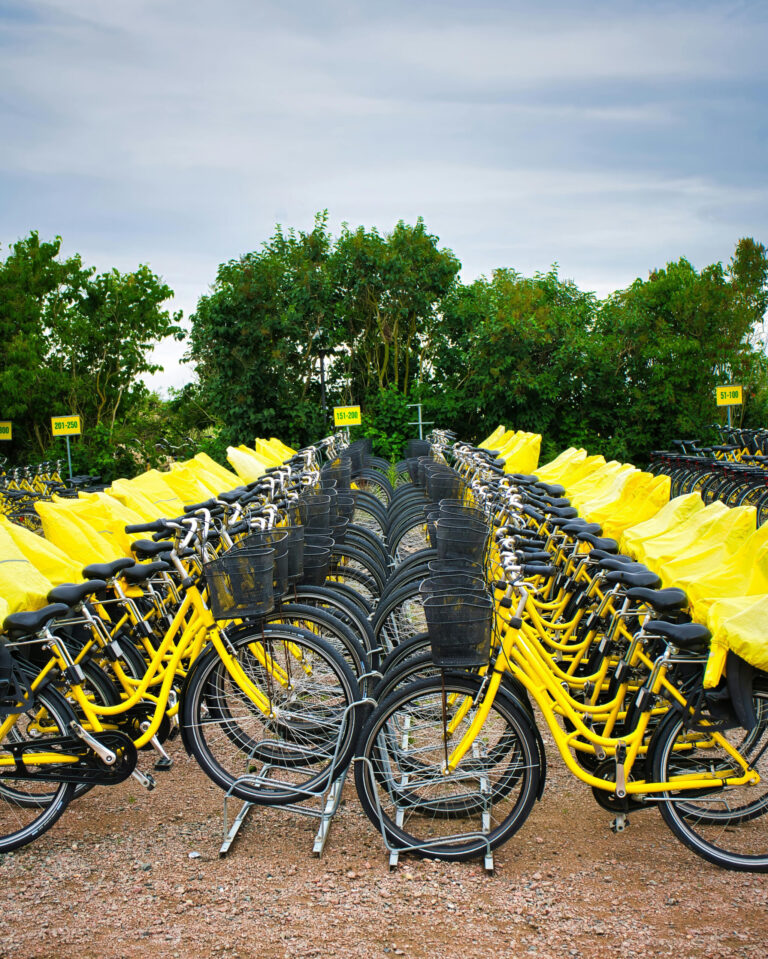Sustainable Universities: Best Practices in the Race to Zero
The urgency of the climate crisis demands bold and immediate action. While governments have traditionally led the charge, the time has come for universities to step into a leadership role and contribute meaningfully to global sustainability efforts.
Why Universities?
Universities are uniquely positioned to combat climate change. Beyond their significant carbon footprints, these institutions shape future leaders and innovators, making them influential agents of change. By integrating sustainability into their missions, universities can model responsible practices and inspire wider societal shifts.
One compelling avenue for action is the UN’s Race to Zero for Universities.
This global campaign unites campuses worldwide in a commitment to achieve net-zero emissions by 2050. The initiative has already galvanised over 1,200 sustainable universities across 87 countries, collectively impacting nearly 12 million students and embedding climate accountability at the heart of higher education.
Commitment Beyond Pledges
Joining the Race to Zero is an essential first step – but the real impact comes when sustainability is ingrained in a university’s mission and operations. Fortunately, several sustainable universities are already leading the way, providing inspiring examples of how ambitious goals can translate into transformative change.
Below, we highlight five standout European institutions setting benchmarks toward a sustainable, net-zero future.
Five European Universities Leading the Way in Sustainability
University College Dublin (UCD), Ireland
Recognised as Ireland’s top University for sustainability in the QS World University Rankings, UCD exemplifies how a comprehensive, systematic approach can drive meaningful progress.
The University has envisioned a clear goal of a green campus and, more importantly, has worked out a way to achieve it by integrating sustainability into all aspects of university life. UCD’s commitment can be best seen through the success of environmentally friendly initiatives like Green Week and the Sustainable Commuting programme. With over 5,000 bike parking spaces and a Bike Library Pilot Programme, the campus has achieved over 80% green commuting. Upcoming initiatives, like a new carpooling program, ensure UCD remains at the forefront of sustainability.

Freie Universität Berlin (FUB), Germany
Now, we move to the capital of Germany, where we have FUB, the University devoted to achieving Climate Neutrality by 2025. FUB has made a bold decision to create emissions-free mobility on campus.
The most prominent initiative that supports that goal is “Climate protection through cycling”. The idea behind this initiative is to encourage the growing interest in sustainable mobility among the University’s members and create a more bike-friendly campus in the following two years. FUB collaborates with mobility service provider Jelbi, offering campus rentals for bicycles, e-scooters, and e-mopeds. In addition to continuously electrifying the University’s vehicle fleet, FUB has introduced incentives such as reduced public transport ticket prices for employees. These initiatives have helped FUB become one of the top German sustainable universities and reduce CO2 emissions by nearly 90% since the early 2000s.

University of Cambridge, UK
As a consistently top-ranked university, Cambridge demonstrates how global leadership can extend to sustainability. Committed to achieving net zero by 2048, the University prioritises reducing Scope 3 emissions, particularly in supply chain and travel.
Efforts include the Cycle to Work Scheme and expanded cycling infrastructure. Electric vehicles are increasingly replacing traditional fleets across its colleges, complemented by partnerships with car-sharing services to reduce single-occupancy commutes. Cambridge’s actions exemplify how strategic, scalable measures can lead to significant progress.

Karolinska Institutet (KI), Sweden
Based in Solna, this leading medical University has made its goal to halve carbon emissions by 2030.
KI plans to achieve this by engaging its entire community and emphasising reducing travel-related emissions. Naturally, the University started encouraging sustainable commuting through options like a commuter bus service for students and staff. KI restricts parking to staff members at a discounted rate to support greener commuting. In addition, to keep KI’s community up to date, the University’s website offers detailed guidance and updates on eco-friendly transportation on campus.

Gdańsk University of Technology, Poland
The University of Technology’s Climate Plan for 2022-2030 focuses on sustainable commuting, community engagement, and sustainable management of the Gdańsk Tech campus.
To reduce CO2 emissions and improve employees’ and students’ health, they’ve started an initiative called “By bike to the University”. This green campaign encourages a change in travelling habits and rewards the most devoted participants with gifts and vouchers. Their latest Climate Plan mentions a carpooling programme as its next Race to Zero step. The Gdańsk University of Technology is yet another university on board with reducing parking spaces and admirably converting parking areas into green zones.

Key Takeaways: Lessons from Leading Sustainable Universities
While each university’s sustainability strategy is unique, common themes emerge:
- Clear and Measurable Targets: Ambitious climate goals are essential. Defining clear benchmarks and accountability mechanisms drives progress and ensures results.
- Focus on Commuting: Decarbonising campus commutes is critical in the Race to Zero. Prioritising cycling infrastructure, reducing car parking and promoting public transport create a culture of sustainable mobility.
- Engaging the Community: Successful initiatives foster collective responsibility. Incentives for green behaviour, such as bike-to-work programmes or carpooling schemes, ensure widespread participation and long-term impact.
Conclusion: Take the Next Step Toward Net Zero
Universities play a pivotal role in addressing the global climate challenge. By championing sustainable commuting and embedding climate-conscious practices, they can significantly reduce their carbon footprints and inspire other sectors to follow suit.
Are you ready to join the ranks of UCD, FUB, and Cambridge? Achieving net zero requires bold action, strategic planning, and shared commitment—but the rewards are transformative.
Take the first step today. Download our Race to Zero Guide for Universities and empower your green campus to lead the global sustainability movement.
Free Guide:
Accelerate your race to zero with KINTO Join
Decarbonising commutes is a powerful and actionable step universities can take to achieve their net-zero goals. To guide you on this journey, we’re offering a comprehensive, downloadable guide: How Universities Can Accelerate Their Race to Zero by Addressing Commutes with KINTO Join.
